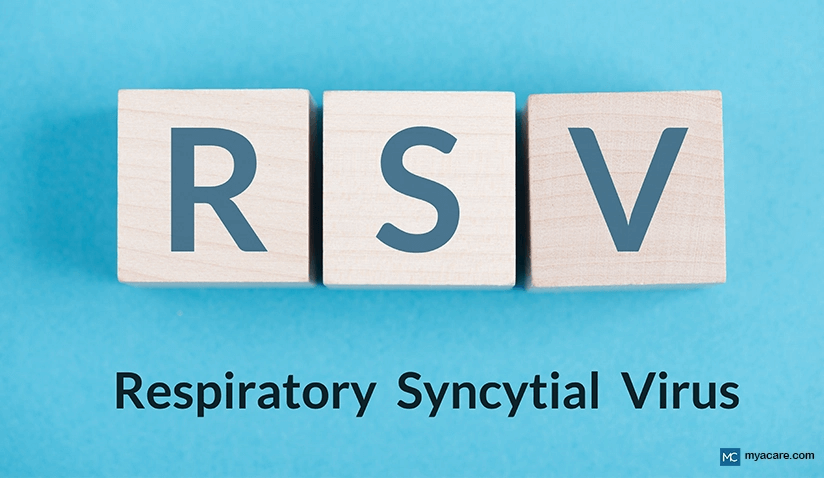What Is Respiratory Syncytial Virus (RSV)?

The respiratory syncytial virus is a very common virus that mostly affects young children and infants. There are about 33 million cases of RSV each year. RSV causes up to 40% of all infant respiratory tract infections leading to hospitalization. The virus is seasonal with most cases happening in spring and winter.
According to the CDC, there has been a surge in RSV cases in 2022. The exact reasons for the surge in cases are not known. However, it may be because young children and babies were largely protected during the Covid-19 lockdowns. In the case of these children, their immune systems are more naïve than usual due to limited contact with other people and pathogens over the last few years. Knowing the symptoms can help you and your children prevent severe illness.
What Are the Symptoms of RSV?
The symptoms of RSV are often similar to those of other respiratory conditions such as the common cold, influenza, and Covid-19. Only a doctor can tell you if your child has RSV.
The following are the symptoms of RSV:
- Difficulty breathing
- Coughing and wheezing
- Sneezing
- Irritability
- Not feeling hungry
- Congestion
- Runny nose
- Fever
- Headache
- Short periods of time when there is no breathing
- Turning blue around the lips
- Crackles in the lungs that are heard by the doctor when listening through a stethoscope
It is crucial that parents are aware of what RSV looks like in babies since they are vulnerable to more severe illnesses. Signs of severe illness in babies include the following:
- Irritable mood
- Shallow and rapid breathing
- Taking short breaths
- Acting lethargic
- Not feeding well
Complications of RSV
Many children and adults who catch RSV only have mild illnesses and are able to recover after a while. However, RSV can be dangerous, especially in infants and those with a weakened immune system. RSV can rapidly worsen and become bronchiolitis and pneumonia. Bronchiolitis is when the small airways (the bronchioles) in the lungs get inflamed. Pneumonia is inflammation of the air sacs in the lungs. RSV can also cause and worsen chronic obstructive pulmonary disease (COPD).
Anyone suspected of having RSV should be seen by a doctor right away to avoid the potential of life-threatening complications.
People at the Highest Risk of RSV Complications
There are some individuals who are more likely to experience severe RSV illness leading to potentially life-threatening complications. These individuals are discussed below.
- Elderly people: Individuals who are older than 65 and have pulmonary and cardiovascular illnesses are at high risk for RSV complications. RSV worsens the condition of adults who have congestive heart failure, arrhythmias, and coronary syndrome. Having asthma also worsens RSV illness in patients.
- People who are immunocompromised: Individuals of any age who have a weak immune system are at high risk of severe illness. Individuals with HIV or cancer are vulnerable to worse illnesses. This is because poor immunity makes it hard for the body to fight off pathogens.
- Infants and children with heart and lung illnesses: Some children are born with congenital cardiac and pulmonary problems that increase the odds of severe infection by RSV.
- Premature infants: A baby born before the 37th week of gestation is premature and vulnerable to any infections, including RSV.
How is RSV Spread?
RSV is a contagious virus that can rapidly spread, causing outbreaks. The RSV virus has a Ro number of about 2.8. This means that each sick person is likely to infect about 2 or 3 other individuals.
- RSV is spread through droplets that sick people expel when they sneeze or cough.
- You can also catch RSV by touching objects or surfaces contaminated with the virus and then touching your mouth, eyes, or nose.
- Washing your hands often is advised to prevent catching RSV and other viral infections such as influenza and Covid-19.
Interestingly, the incidence of RSV during the peak of Covid-19 was low. This is believed because people were either in lockdown or at least socially isolated more than they are today.
Like all respiratory infections, RSV is easily transmittable among people, particularly in a crowded setting.
Is There a Vaccine for RSV?
There is currently no approved vaccine you can get for RSV. However, Pfizer is seeking US Food and Drug Administration (FDA) approval for their new RSV vaccine. The vaccine is based on proteins found in the virus.
The virus alters its proteins often, and up until now, this has made it a challenging situation for designing an effective vaccine. Trials indicate that the new Pfizer RSV vaccine is between 70% to 82% effective in preventing severe RSV infection in hospitalized babies.
The best strategy for parents is still to avoid contact with sick individuals. It is particularly important to keep infants and young children away from others who are ill.
How is RSV Diagnosed?
Diagnosis of RSV is done by a combination of noting the symptoms and doing a molecular or rapid antigen test. Molecular tests based on RT-PCR have the highest accuracy for diagnosing RSV. The molecular tests can indicate the presence of the RSV genome.
Diagnostic tests are important in hospitals to isolate contagious children from others. RSV can quickly spread through hospital wards where premature infants and sick children are present.
Treatment Methods for RSV
Since RSV is a viral infection, there are limits to how it can be treated. Methods of RSV treatment that are currently used are discussed below.
- Palivizumab is a medication that can be given to preterm infants to help prevent RSV. It is not a vaccine but rather this medication is a mixture of antibodies that helps the immune system fight off the virus.
- Ribavirin is an antiviral medication that can limit the severity of a viral illness but can only be used as an aerosol for treating children.
- Intravenous fluids may be needed for dehydrated patients.
- Patients with RSV may need to be in the hospital and given supplemental oxygen.
- In extreme cases, a patient may need to be on a ventilator.
- Antibiotics are not useful unless there is a secondary bacterial infection present. This is because antibiotics do not kill viruses, only bacteria.
Conclusion
RSV is a common illness affecting mainly children and infants. Although many people who are sick with RSV quickly recover, this is not always the case. RSV can be dangerous, especially for preterm babies and people with heart and lung problems or who are immunocompromised in some way. Diagnosis and treatment need to be done rapidly to prevent dangerous complications.
To search for the best Pulmonary and Respiratory Medicine healthcare providers in Germany, India, Malaysia, Spain, Thailand, Turkey, the UAE, the UK and The USA, please use the Mya Care Search engine
To search for the best healthcare providers worldwide, please use the Mya Care search engine.

Dr. Rae Osborn has a Ph.D. in Biology from the University of Texas at Arlington. She was a tenured Associate Professor of Biology at Northwestern State University, where she taught many courses to Pre-nursing and Pre-medical students. She has written extensively on medical conditions and healthy lifestyle topics, including nutrition. She is from South Africa but lived and taught in the United States for 18 years.
Sources:
Featured Blogs



